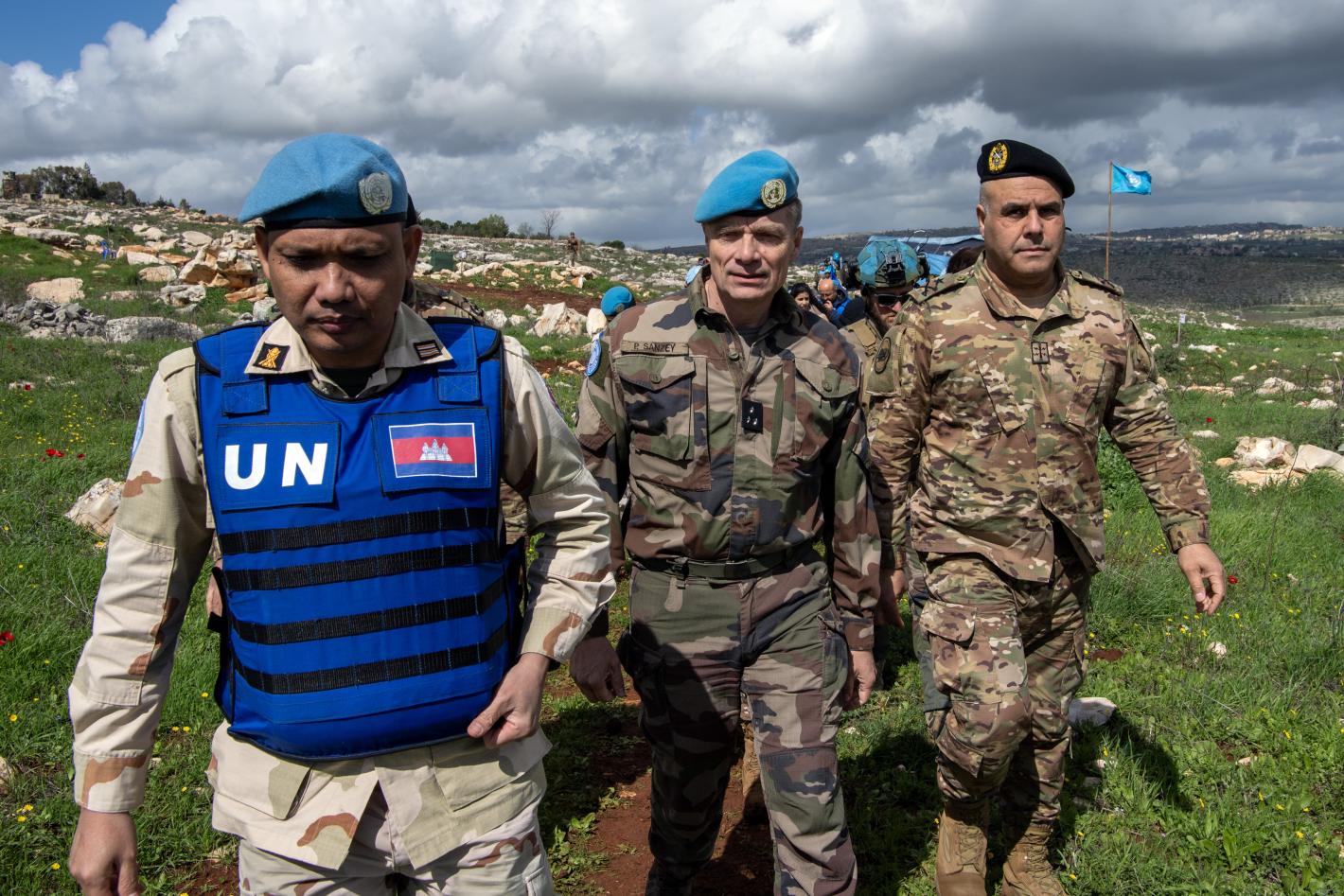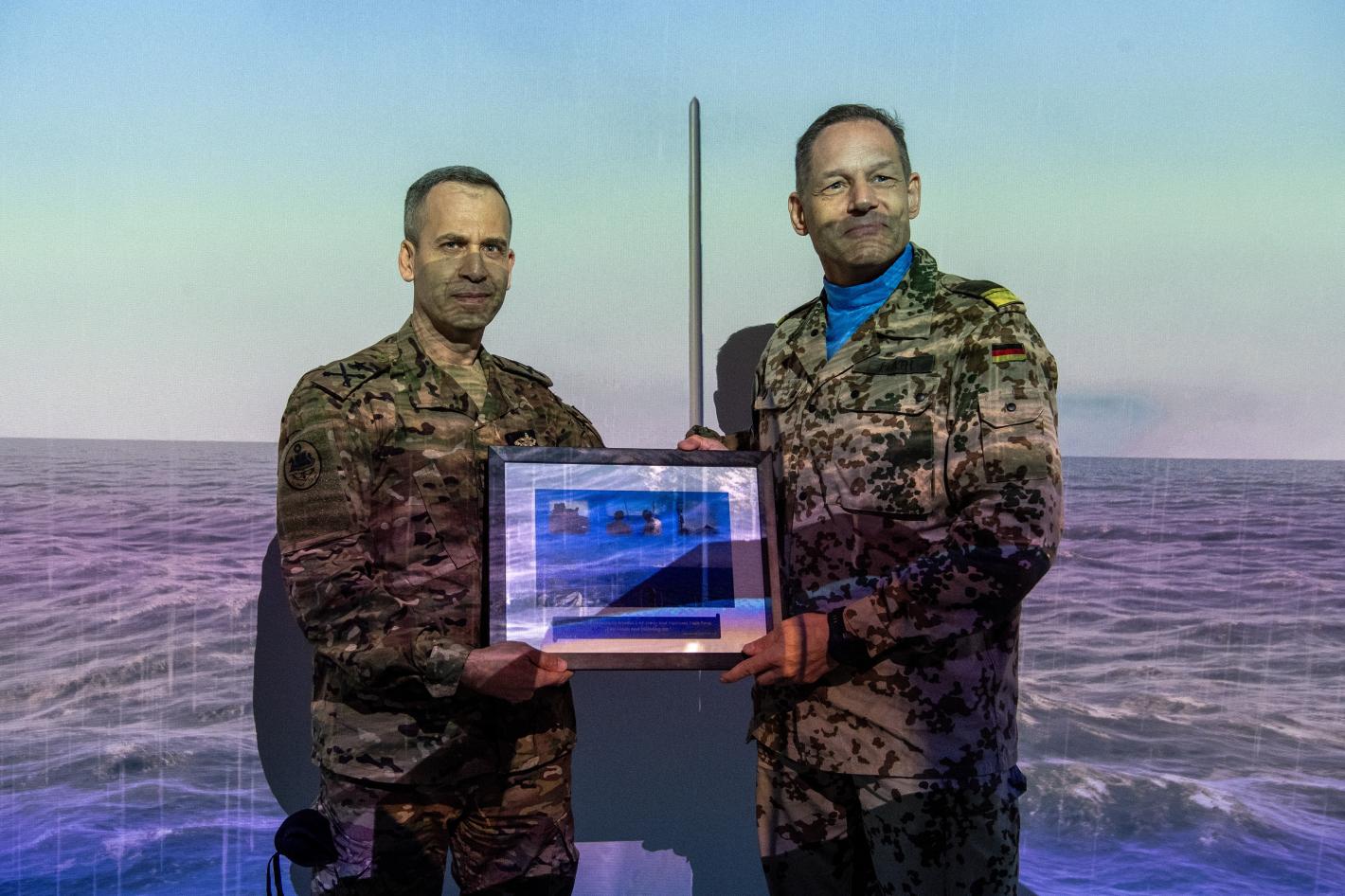Naqoura, Lebanon – The United Nations Interim Force in Lebanon (UNIFIL) marked the International Day for Mine Awareness and Assistance in Mine Action by bringing greater focus on mine risk education for children.
Schools in Ain Arab, Ayta Ash Sha'b, Bint Jubayl, Burj Rahhal, Houla, Ramyah, Yarin and other parts of southern Lebanon witnessed interactive sessions on mine-risk education, demonstrations of explosive detection dogs and improvised explosive device disposal, as well as static exhibits of explosive ordnance disposal and demining equipment. The demonstrations were organised by Explosive Ordnance Disposal teams from UNIFIL's Chinese, Italian, French, South Korean and Spanish battalions.
"Mine action is not just about clearing the ground of explosive items," UNIFIL's Force Commander Major-General Claudio Graziano said. "It is important to raise awareness among people living in mine-affected areas so that they are able to protect themselves from the danger."
Mine infestation remains a challenge in southern Lebanon with UXOs, particularly cluster munitions left over from the 2006 conflict, claiming an average of two civilian casualties per month. UXOs and cluster munitions have caused 27 civilian fatalities and 238 civilian injuries in the area. Besides, during mine clearance operations 14 de-miners (including two UNIFIL peacekeepers) have been killed and 42 injured.
During 2002–2008, mine clearance in southern Lebanon was coordinated by the United Nations Mine Action Coordination Centre of Southern Lebanon (UNMACC-SL) as a partnership between the United Nations and the Lebanese Armed Forces. Until 1 March 2009, a total of 43 million square metres of the contaminated areas have been cleared through the joint efforts of the Lebanese Armed Forces, UNIFIL and international clearance organizations. Since the end of the 2006 conflict, 154,733 cluster munitions have been located and destroyed.
As a part of this coordinated effort, UNIFIL demining teams have to date cleared more than 4.6 million square metres of affected land and destroyed more than 32,000 unexploded ordnances (UXOs) and mines in southern Lebanon. In addition, UNIFIL regularly carries out activities directed at raising awareness amongst the local population about the danger of landmines and other explosive remnants of war.
With the transition of coordination authority to the Lebanon Mine Action Centre (LMAC) this year, UNMACC-SL has now been integrated into UNIFIL. The Lebanese Armed Forces component will continue its work as a part of the Lebanese Regional Mine Action Centre in Nabatieh.
Landmines and explosive remnants of war affect at least 78 countries and injure or kill between 15,000 and 20,000 people every year. Fourteen United Nations agencies, funds, programmes, and departments are together helping find and destroy these devices and providing other mine-action services in more than 30 countries and territories.
***
For further information, please contact the UNIFIL Public Information Office:
Spokesperson Yasmina Bouziane
Tel.: +961 1 827 037 (office); +961 7092 6950 (cell)
Fax: +961 1 827 016
Email: bouziane@un.org
View the UNIFIL website:
http://unifil.unmissions.org





